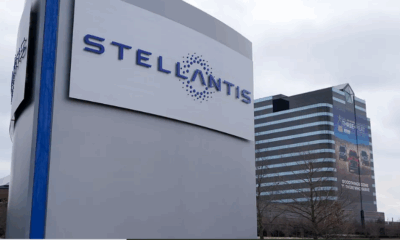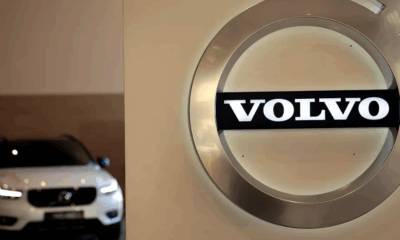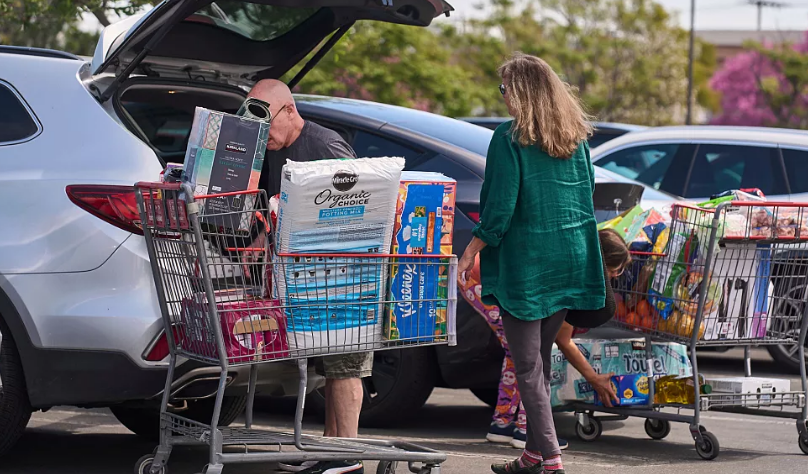Business
Serica Energy Considers Exit from UK Amid Rising Taxes, Eyeing Nordic Markets
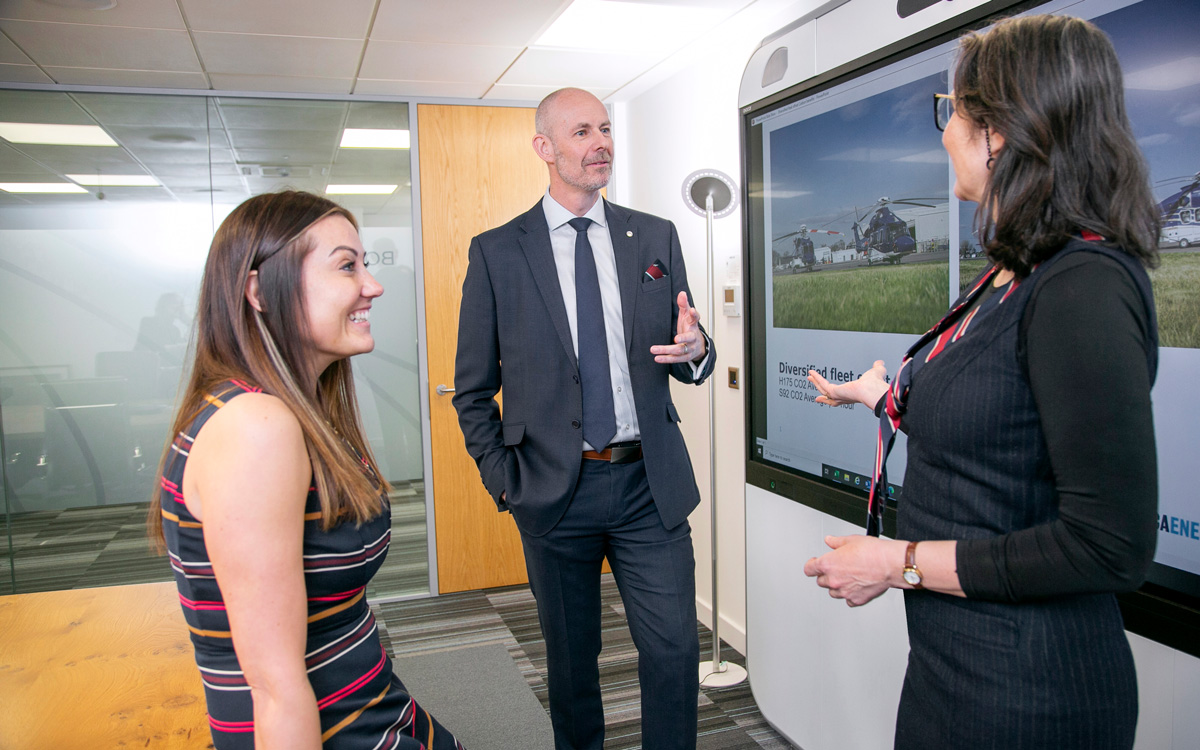
North Sea gas company Serica Energy is contemplating relocating its operations from the UK to Nordic countries, such as Norway, due to the UK’s increasingly burdensome tax regime. This potential move could deal a significant blow to Britain’s energy sector, which has already seen several offshore energy firms exit the country following steep tax increases.
Currently, Serica Energy produces between 41,000 and 46,000 barrels of oil per day and supplies about 5% of the UK’s gas. However, the attractiveness of the UK as a drilling destination has diminished in recent years. Taxes on UK oil and gas profits have surged from 40% to approximately 78% over the past three years. The situation could worsen if UK Chancellor Rachel Reeves proceeds with further tax hikes in the upcoming Budget, prompting companies to consider exit strategies.
Norway has emerged as a viable alternative for Serica Energy. The country offers a favorable business environment for companies like Serica, which specializes in revitalizing older oil and gas fields in the North Sea. Norway’s robust offshore energy market, experienced industry network, advanced technology, operational efficiency, and stable business climate make it an attractive option. Additionally, Norway’s double tax treaties with various nations could benefit companies seeking global expansion.
Serica Energy Chairman David Latin expressed concerns about the impact of the UK’s tax regime on smaller domestic companies. Speaking to The Telegraph, Latin highlighted the disproportionate effect on UK-based firms compared to international giants. “The consequences of being a purely British-based company are horrific at the moment,” Latin said. He noted that while the Labour manifesto’s announcement barely affected the share prices of major oil and gas companies, smaller UK firms experienced substantial declines.
The UK remains heavily reliant on fossil fuel imports, with net energy imports rising to 40.8% in 2023, up from 37% in 2022, according to the Digest of UK Energy Statistics (DUKES). As the UK continues to depend largely on fossil fuels, the increasing tax burden on energy companies is exacerbating the problem. This situation is further complicated by the slow progress in expanding renewable energy infrastructure, potentially increasing the country’s economic vulnerability and dependency on energy imports.
Amid growing pressure from environmental groups to take action against oil and gas companies, some politicians are grappling with the challenge of transitioning to renewable energy while ensuring a stable energy supply. In response to the tax pressures in the UK, other energy firms, including Shell, are exploring opportunities in the US, where the energy sector enjoys more favorable conditions and greater investment opportunities.
Business
Financial Influencer Jenny Okpechi Shares How Early Investing Helped Her Build a Six-Figure Portfolio

Financial influencer Jenny Okpechi, known online as @savvymoneygirl, is championing the power of early and consistent investing after building a multiple six-figure portfolio through smart financial planning and diversified income streams.
Speaking to Euronews, Okpechi emphasized that wealth-building is a long-term process rooted in discipline, education, and strategic action—not overnight success. Her financial journey began at just 16, when she started saving and investing small amounts despite limited resources.
“I started very young and very intentionally,” she said. “I learned to budget, live within my means, and gradually moved from saving to investing in treasury bills, corporate bonds, and stocks.”
Raised in a traditional African household where financial decision-making was often seen as a male role, Okpechi had to push against cultural barriers. “I wanted to prove that women could manage and grow money just as well,” she said. That determination led her to pursue multiple sources of income while also studying, including paid surveys, tutoring, and blogging.
Today, Okpechi boasts eight income streams, ranging from her full-time job as a Scrum Master and a part-time healthcare assistant role, to digital product sales, affiliate marketing, brand collaborations, and investments in REITs, index funds, and stocks. She is also building Moneybestie, a fintech app aimed at improving financial literacy among women and girls.
“I pay myself first and invest consistently. I only invest in what I understand—nothing fancy, just steady and simple,” she said. She credits compound interest and the discipline of regular investing as major factors in her portfolio growth.
Okpechi encourages young people to start investing early—even with small amounts. “Don’t wait until you earn more. Start with £25 a month if that’s all you can. Automate it, and let time do the work,” she advised. “Time in the market beats timing the market.”
Despite her success, Okpechi has faced challenges—from overcoming imposter syndrome in the male-dominated finance and tech industries to battling burnout while juggling multiple roles. She also confronted deep-rooted gender biases that undervalue women’s financial potential.
Her message to aspiring investors is clear: “Learn about money like your financial freedom depends on it—because it does. Talk about money, forgive your financial mistakes, and keep moving forward.”
With Generation Z reportedly beginning to invest earlier than previous generations—at an average age of 19—Okpechi’s story offers both inspiration and practical guidance for anyone looking to secure their financial future.
Business
U.S. Economy Contracts for First Time in Three Years Amid Tariff Turmoil
Business
Stellantis Appoints Antonio Filosa as CEO Amid Profit Slump and Strategic Challenges
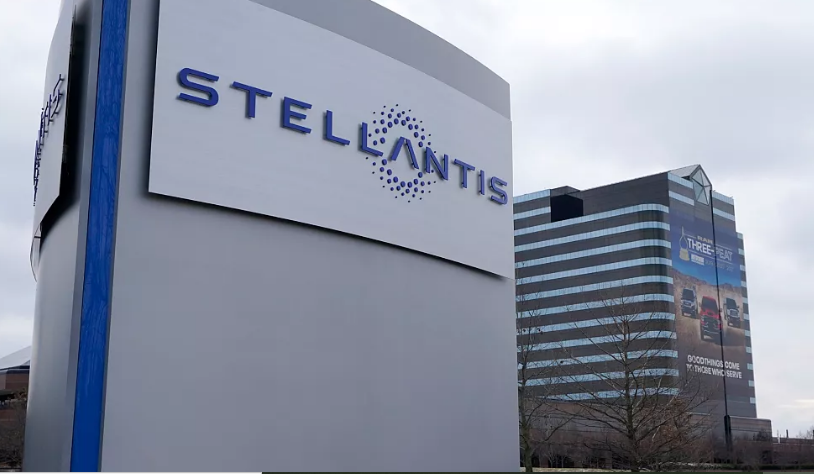
Stellantis has named Antonio Filosa, its Chief Operating Officer for North America, as the company’s new Chief Executive Officer, following the unexpected resignation of former CEO Carlos Tavares in December. Filosa, 51, will formally assume the role on June 23, pending approval at an upcoming shareholder meeting.
The announcement, made on Monday, comes at a turbulent time for the world’s fourth-largest carmaker, which has been grappling with slowing sales in key markets and internal disagreements over the pace of electrification.
Stellantis, the multinational automotive group behind 14 brands including Peugeot, Fiat, Chrysler, Citroën, and Jeep, issued a profit warning last September due to slumping demand in the United States and Europe. The warning preceded the abrupt exit of Tavares, who reportedly clashed with the board over his aggressive push for a full transition to battery electric vehicles (BEVs) in Europe by 2030. The board had advocated for a more gradual approach.
Filosa’s appointment signals a strategic reset for the group, which is under pressure from weak North American performance, rising global competition, and trade policy uncertainties, particularly from the United States. Former President Donald Trump’s tariff stance on foreign automakers continues to cast a shadow over multinational manufacturers like Stellantis.
In its official statement, the company praised Filosa for his “proven track record of hands-on success during his more than 25 years in the automotive industry,” as well as his “unrivalled knowledge of the company and recognised leadership qualities.” The Naples-born executive has held various leadership roles across Stellantis’ global operations and was promoted to head of North America shortly after Tavares’ departure.
During his tenure in North America, Filosa has worked to reduce bloated inventories and restore dealer confidence following months of sluggish sales. As CEO, he will now oversee a vast portfolio of brands and be tasked with balancing profitability, innovation, and sustainability across diverse markets.
Filosa’s leadership will be closely watched as Stellantis navigates regulatory shifts, intensifying competition in electric vehicles, and a volatile geopolitical landscape. The shareholder meeting to confirm his appointment is expected to be announced in the coming days.
-

 Business1 year ago
Business1 year agoSaudi Arabia’s Model for Sustainable Aviation Practices
-

 Business1 year ago
Business1 year agoRecent Developments in Small Business Taxes
-

 Politics1 year ago
Politics1 year agoWho was Ebrahim Raisi and his status in Iranian Politics?
-

 Business11 months ago
Business11 months agoCarrectly: Revolutionizing Car Care in Chicago
-

 Business11 months ago
Business11 months agoSaudi Arabia: Foreign Direct Investment Rises by 5.6% in Q1
-

 Technology1 year ago
Technology1 year agoComparing Apple Vision Pro and Meta Quest 3
-

 Politics1 year ago
Politics1 year agoIndonesia and Malaysia Call for Israel’s Compliance with ICJ Ruling on Gaza Offensive
-

 Sports10 months ago
Sports10 months agoKeely Hodgkinson Wins Britain’s First Athletics Gold at Paris Olympics in 800m





